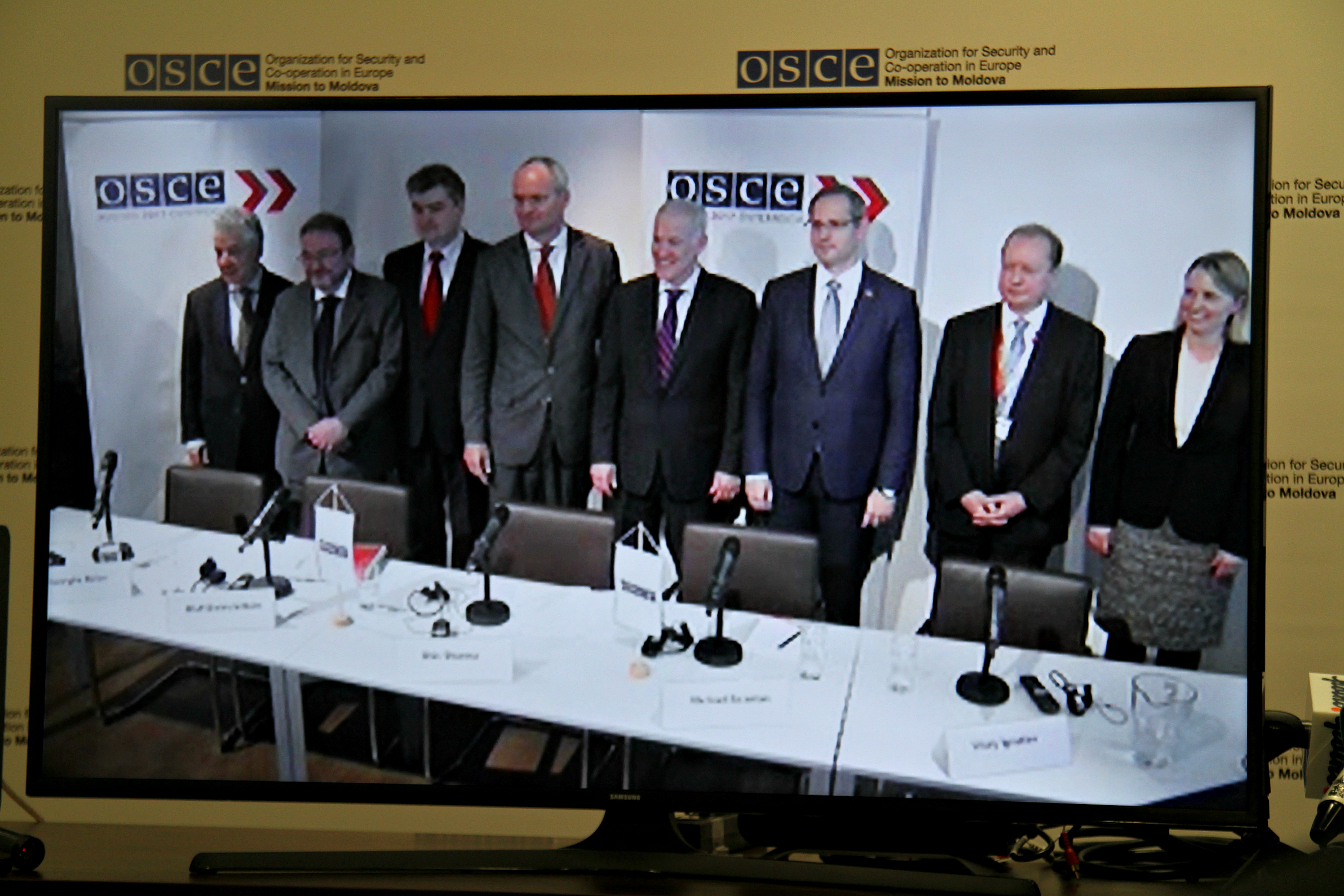The only round of negotiations in the 5+2 format this year has ended in the capital of the Austrian Republic
On November 27-28, a meeting of the “Permanent Conference...” in the 5+2 format was held in Vienna. The only round of talks in the international format this year ended with an official briefing for the media with participation of political representatives from Pridnestrovie and the Republic of Moldova, as well as the Special Representative of the OSCE Chairman-in-Office Wolf Dietrich Heim and the Head of the OSCE Mission to Moldova Michael Scanlan.
During the press conference the Minister of Foreign Affairs of the PMR Vitaly Ignatiev noted that following the results of the meeting all the participants in the negotiation process signed the Protocol, which reflected a number of fundamental aspects of the discussions held, as well as fixed some areas of practical work of the parties at the negotiating table in the short term.
According to the Head of the Foreign Ministry of Pridnestrovie, the main attention at the latest 5+2 round was paid to continuation of work on implementation of some provisions of the Berlin Protocol, not implemented since its signing on June 3, 2016.
In this context, Vitaly Ignatiev said that the parties agreed on the need to develop and sign a corresponding agreement on the mechanism for participation of Pridnestrovian vehicles in international traffic until the end of February 2018. In addition, the document on the results of discussions also reflected the need to achieve practical results in 2018 on the items of the Berlin Protocol related to the problem of politically motivated criminal cases, as well as a mechanism of guarantees for implementation of the agreements reached. Commenting on this aspect, the PMR Foreign Minister expressed confidence that moving forward on such important areas will allow the parties “not only to stabilize the dynamics of the negotiation process, but also to come to new positive solutions that will positively affect people’s lives”. In particular, talking to the mass media, Vitaly Ignatiev noted that as an actual basis for developing a guaranteeing mechanism for the agreements reached at the negotiating table the Pridnestrovian side is considering the proposals of the Russian Federation submitted in June 2016.
In the context of communication with the mass media, the Pridnestrovian Foreign Minister also said that the Pridnestrovian side had brought to the notice of all participants of the “Permanent Conference...” a principled position on inadmissibility of establishing joint control of Moldova and Ukraine on the Pridnestrovian-Ukrainian border and provided comprehensive information on the negative consequences of this unilateral decision if implemented. In addition, during the briefing, the diplomat noted the difficulties in the 5+2 functioning in 2017 and stressed that “all parties expressed readiness for carrying out the rhythmic work of the negotiation process at all its levels, including the activities of the “Permanent Conference...”.
According to Vitaly Ignatiev, Pridnestrovie took the initiative to formalise consensus of the negotiating parties as the only and sufficient condition for holding meetings in the 5+2 format, but this principle was not documented in the course of the discussions, because the Moldovan side was not ready to approve such an approach, despite that the initiative was supported by the Russian Federation and Ukraine.
Concluding his speech, Vitaly Ignatiev noted that the Pridnestrovian side is considering the protocol signed as a result of the “Permanent Conference…” meeting as a practical document “which is significant for solving further problems”. At the same time, in the opinion of the Minister, it is of fundamental importance that in the course of the discussions all the participants in the negotiation process agreed on the need to focus targeted practical efforts on socio-economic and humanitarian issues. “This is an important area, which is not limited to those issues that have been discussed during the current meeting. There are many more of them: there are problems in the railway sector, issues related to the work of banks and many other aspects that are now on the negotiating table and the level of people’s lives depends on their resolution,” he stressed.











